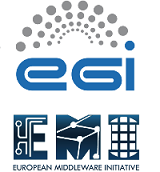Speaker
Conclusions
DC-NET coordinates interaction and liaison across borders and also across the interface between cultural heritage and e-Infrastructure. Across borders, the Cultural Ministries of the EU work together to identify and prioritise the new actions which should be undertaken in order to bring digital cultural heritage to a new level of development. Across sector boundaries, the cultural heritage experts and the e-Infrastructure experts match the capabilities of the e-Infrastructure and the ambitions of the digital heritage community. The European Ministries of Culture, owners and managers of the national programmes for the research in the field of the digital cultural heritage interact with their respective national executive bodies responsible for the eInfrastructure development to develop an action plan that will strengthen their cooperation at national and cross-border level, in pursuit of a common objective: a European research infrastructure for digital cultural heritage.
URL
www-dc-net.org
Overview
The cultural heritage domain (libraries, museums, archives and other cultural bodies) has seen quite a revolution in the last twenty years. Increasing amounts of cultural heritage data are being converted to digital form and made available via the Worldwide Web to researchers, students and the interested public. This represents an important opportunity for the improvement of the quality of life of the European citizen, for the delivery of cultural education, for the promotion of cultural tourism, for the developmand of the creative industry, for increasing the value which society enjoys from its common patrimony.
However, there has been no revolutionary technological leap forward since the digitisation and online publication began. Bandwidth, storage and search power are all major constraints.
The establish a dialogue and a factual relationship between the cultural sector, the research sector and the research infrastructures in Europe is the key factor to overcome these limits.
Impact
At political level, there are two main bodies that should be mentioned: the Member States Experts Group for Digital Libraries established by the European Commission (MSEG); and the Joint Programming Initiative for Cultural heritage (JPI-CH) established by the Member States. The DC-NET community is fully involved in MSEG, where many experts of DC-NET participate as national representatives. With regard to the JPI-CH, DC-NET shares with NET-HERITAGE the operative foundation of the Initiative, being the former target to the research for the digital heritage and the latter to the research for the tangible heritage.
At project level, in parallel with DC-NET, the community is active at international level with the INDICATE project targeted to the Mediterranean region and in supporting Europeana with many projects, among which are the two Best Practice Networks ATHENA and LINKED HERITAGE.
The next step in the vision of DC-NET is the deployment of a persistent and robust data infrastructure for digital cultural heritage, built on the facilities available from the e-Infrastructures sector. This data infrastructure should be able to deliver services and facilities that enable researchers to treat collections of data from many heterogeneous data sources as a continuum, overcoming linguistic, institutional, national and sectoral boundaries. It should also provide services and facilities for collection owners, so that they can store, protect and present their collections online without any loss of identity, ownership or intellectual property. Finally, it should addresses the most common causes of fragmentation in the digital cultural heritage sphere, including variations in policies, languages, metadata models and vocabulary. The design and implementation of such a data infrastructure dedicated to the digital cultural heritage is central to the vision of DC-NET and is at the core of its Joint Activities Plan.
Description of the work
Digital Cultural heritage has several exciting and important challenges which need to be addressed in order to increase the value that society as a whole derives from its heritage. These include:
- Multilingual and multi-national collaboration. Combining national cultural heritage research initiatives to European-wide and international scale;
- Access to everything. Enabling online access to more than a small proportion of holdings;
- Delivering the best. Providing access to the highest quality multimedia materials online, including audio-visual, 3D, text and images;
- Searching beyond text. Enabling users to use images, sounds, shapes and other aspects of items as search criteria;
- From active to passive. Allowing interaction and manipulation of digital items;
- Maintaining control and rights management. Cultural heritage material belongs to a huge number of autonomous entities, each with its own intellectual property rights;
- Long-term preservation of digital materials. Both digitized and born digital.
Each of these challenges can be met by exploiting the results derived from R&D projects for ICT applied to the cultural heritage, including national, regional and EC initiatives and by redeploying these results to e-Infrastructures.
In the framework of the DC-NET project, eight governments and research agencies are working to reach an agreement on a set of common priorities for digital cultural heritage research and are discussing with e-Infrastructures to identify how best to carry out this research using the National Research and Education Networks and the other Grid providers.
However, the scope of DC-NET goes beyond the current ERA-NET project.
The community of the digital cultural heritage is naturally larger then the eight Ministries participating to DC-NET. The network enlargement is on going and many cultural institutions, governmental agencies and Ministries in Europe and beyond are in the process to formalise their participation to DC-NET.

